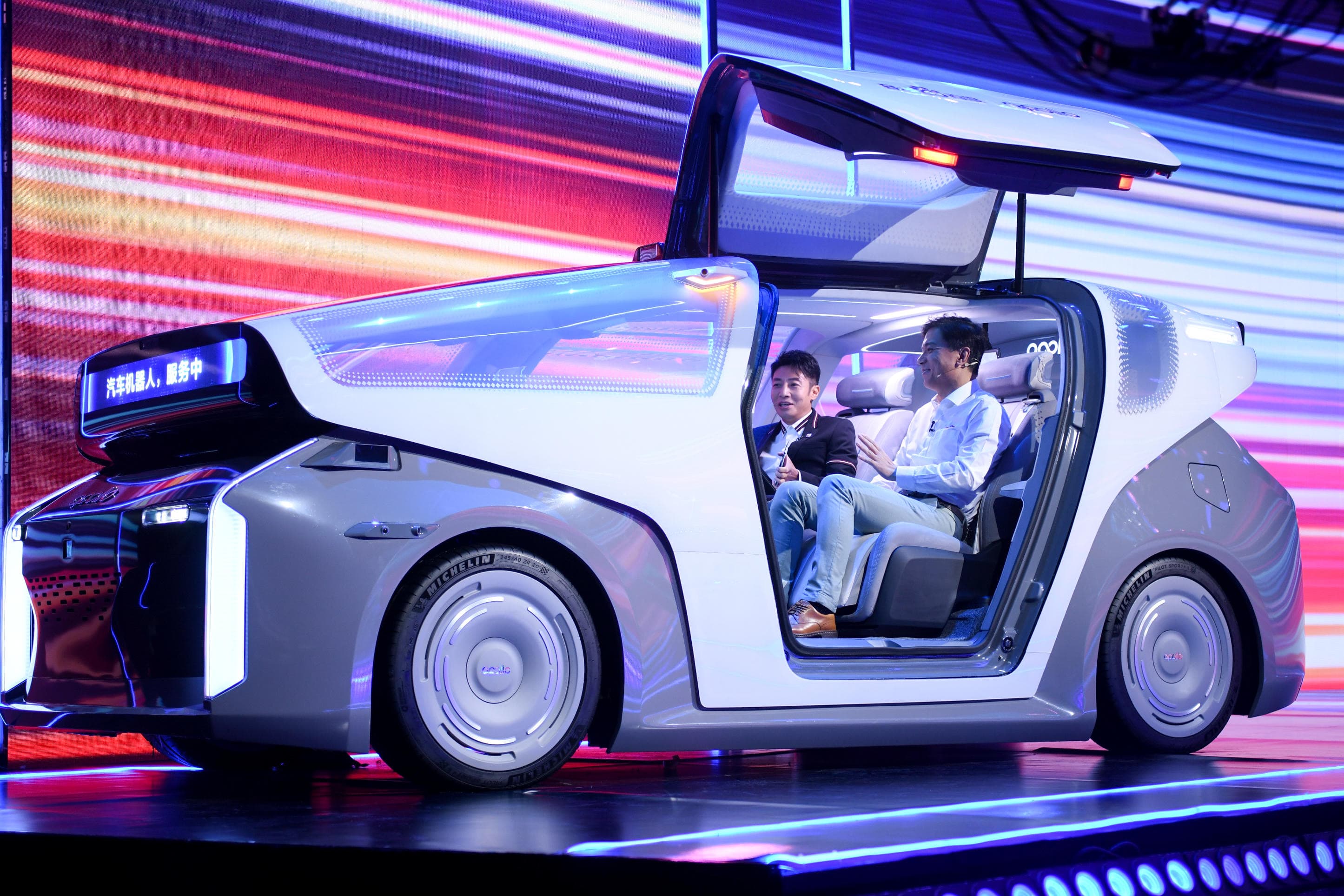
Robin Li (R), CEO of Baidu, sits in the Chinese tech giant’s new prototype “robocar”, an autonomous vehicle, at the company’s annual Baidu World conference on Wednesday, August 18, 2021.
Baidu
GUANGZHOU, China — Chinese internet giant Baidu unveiled its second-generation artificial intelligence chip, its first “robocar” and a rebranded driverless taxi app, underscoring how these new areas of technology are key to the company’s future growth.
The Beijing-headquartered firm, known as China’s biggest search engine player, has focused on diversifying its business beyond advertising in the face of rising competition and a difficult advertising market in the last few years.
Robin Li, CEO of Baidu, has tried to convince investors the company’s future lies in AI and related areas such as autonomous driving.
On Wednesday, at its annual Baidu World conference, the company launched Kunlun 2, its second-generation AI chip. The semiconductor is designed to help devices process huge amounts of data and boost computing power. Baidu says the chip can be used in areas such as autonomous driving and that it has entered mass production.
Baidu’s first-generation Kunlun chip was launched in 2018. Earlier this year, Baidu raised money for its chip unit valuing it at $2 billion.
Robocar
Baidu also took the wraps off a “robocar,” an autonomous vehicle with doors that open up like wings and a big screen inside for entertainment. It is a prototype and the company gave no word on whether it would be mass-produced.
But the concept car highlights Baidu’s ambitions in autonomous driving, which analysts predict could be a multibillion dollar business for the Chinese tech giant.
Baidu has also been running so-called robotaxi services in some cities including Guangzhou and Beijing where users can hail an autonomous taxi via the company’s Apollo Go app in a limited area. On Wednesday, Baidu rebranded that app to “Luobo Kuaipao” as it looks to roll out robotaxis on a mass scale.
In June, Baidu announced a partnership with state-owned automaker BAIC Group to build 1,000 driverless cars over the next three years and eventually commercialize a robotaxi service across China.
Baidu also announced four new pieces of hardware, including a smart screen and a TV equipped with Xiaodu, the company’s AI voice assistant. Xiaodu is another growth initiative for the company.

